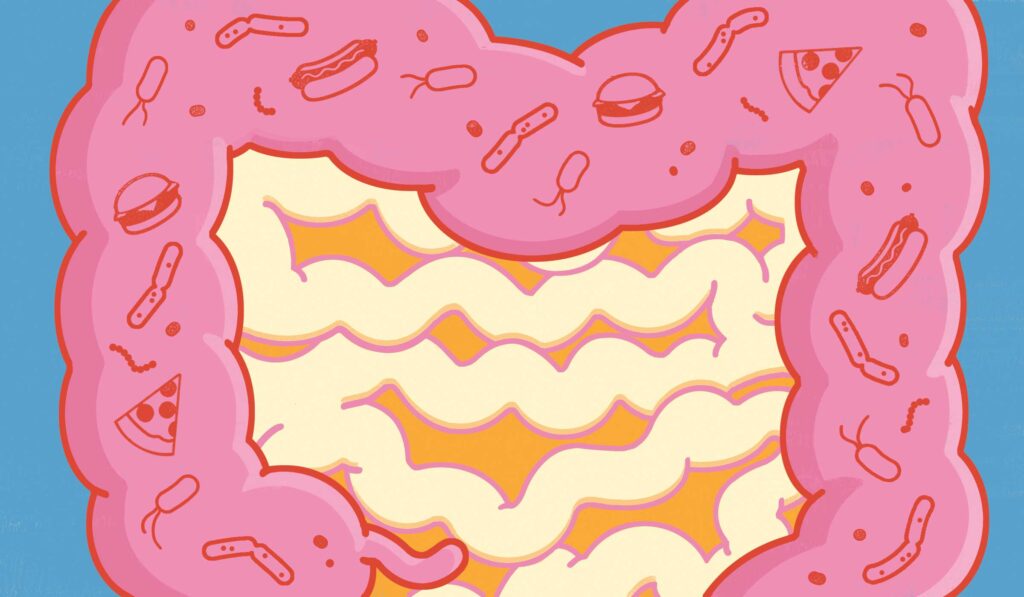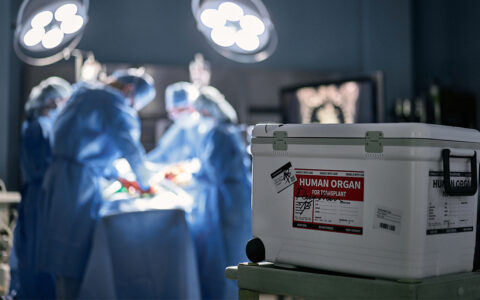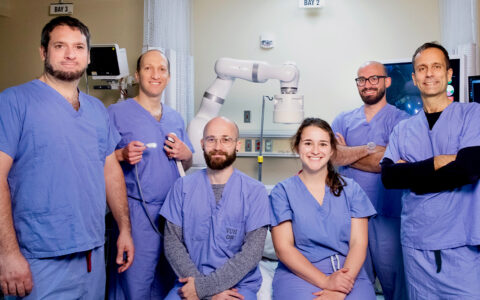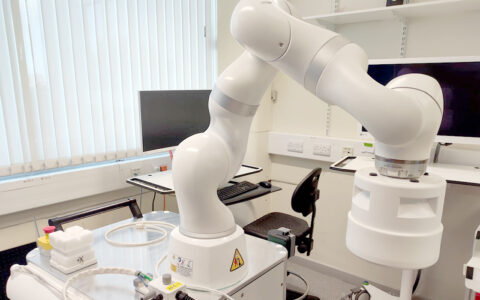Researchers at Vanderbilt University Medical Center have found that a diet high in fat disrupts the intestinal epithelium, permitting the bloom of harmful gut microbes known to produce a metabolite implicated in heart disease. Published in Science, the new study establishes a link between diet, the gut microbiome, and heart health, and suggests a novel way to prevent or treat cardiovascular disease.
“Our research has revealed a previously unexplored mechanism for how diet and obesity can increase risk of cardiovascular disease – by affecting the relationship between our intestines and the microbes that live in our gut,” said Mariana Byndloss, Ph.D., co-lead author on the study and an assistant professor of pathology, microbiology and immunology at Vanderbilt.
“We show one way that diet directly affects the host and promotes the growth of bad microbes.”
Maintaining Beneficial Gut Flora
The community of microorganisms residing in the gut continually sense and respond to cues in the surrounding environment. While small fluctuations in the assembly of intestinal microbes is expected, large shifts in the gut microbiome have been linked to inflammatory bowel disease (IBD) and many other malignancies.
Previous studies from Byndloss and colleagues, including Andreas Baumler, Ph.D., at the University of California, Davis, established that intestinal epithelial cells and gut microbes share a mutually beneficial, homeostatic relationship that promotes a healthy gut.
“Our research has revealed a previously unexplored mechanism for how diet and obesity can increase risk of cardiovascular disease – by affecting the relationship between our intestines and the microbes that live in our gut.”
At the center of the relationship is oxygen; mitochondrial function of intestinal epithelial cells limits the amount of oxygen reaching the colonic lumen, and this anaerobic environment supports beneficial bacteria.
The researchers wondered whether a high-fat diet and diseases like obesity affect this relationship. The intestines, Byndloss notes, have been relatively understudied by scientists seeking to understand the impact of obesity.
Direct Effect of High-fat Diet on the Intestines
In their newest publication, Byndloss and colleagues report that a high-fat diet causes inflammation and damages intestinal epithelial cells in animal models. A high-fat diet was specifically shown to impair the function of mitochondria, causing intestinal epithelial cells to produce more oxygen and nitrate. In turn, these normally restricted factors fuel the growth of harmful microbes, such as Escherichia coli, and boost bacterial production of the metabolite trimethylamine (TMA).
Importantly, TMA is metabolized in the liver into trimethylamine N-oxide (TMAO), which has been implicated in promoting cardiovascular disease.
“It was known that exposure to a high-fat diet causes dysbiosis – an imbalance in the microbiota favoring harmful microbes – but we didn’t know why or how this was happening,” Byndloss said. “We show one way that diet directly affects the host and promotes the growth of bad microbes.”
Restoring a Healthy Gut Environment
The researchers further demonstrated that 5-aminosalicylic acid, a drug currently approved for treatment of IBD, blunted the increase in TMAO by activating mitochondrial bioenergetics and restoring the function of intestinal epithelial cells.
“This is evidence that it’s possible to prevent the negative outcomes associated with a high-fat diet,” Byndloss said. A drug such as 5-aminosalicylic acid might be used in conjunction with a probiotic to both restore a health intestinal environment and boost beneficial microbe levels, she added.
“Only by fully understanding the relationship between the host – us – and gut microbes during health and disease are we going to be able to design therapies that will be effective in controlling obesity and obesity-associated outcomes like cardiovascular disease.”
Byndloss and her team plan to extend their studies into animal models of cardiovascular disease. They are also exploring the role of the host-microbe relationship in the development of other diseases including colorectal cancer.





